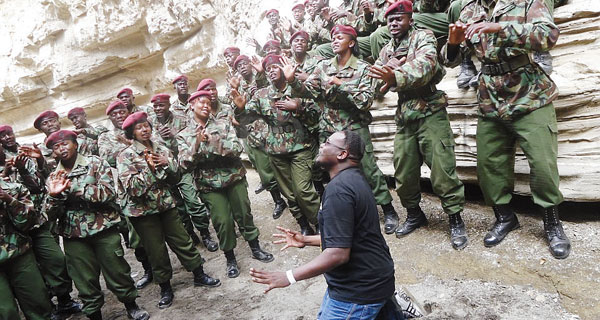×
The Standard e-Paper
Smart Minds Choose Us
 |
|
Rufftone and the GSU crew during the shooting of the Mungu Baba video at Hell’s Gate, Naivasha. [PHOTOS: PIUS CHERUIYOT/STANDARD] |
By CAROLINE NYANGA
Gospel musician and peace ambassador RUFFTONE, 34, is back with bigger and better surprises. CAROLINE NYANGA found out what inspired his current hit, Mungu Baba, and whether rumours of him tying the knot soon are true